Ocean Vuong
A Life Worthy of Our Breath
Krista interviewed the wise and wonderful writer Ocean Vuong on March 8, 2020 in a joyful, crowded room full of podcasters in Brooklyn. A state of emergency had just been declared in New York around a new virus. But no one guessed that within a handful of days such an event would become unimaginable. Most stunning is how presciently, exquisitely Ocean speaks to the world we have come to inhabit— its heartbreak and its poetry, its possibilities for loss and for finding new life.
“I want to love more than death can harm. And I want to tell you this often: That despite being so human and so terrified, here, standing on this unfinished staircase to nowhere and everywhere, surrounded by the cold and starless night — we can live. And we will.”
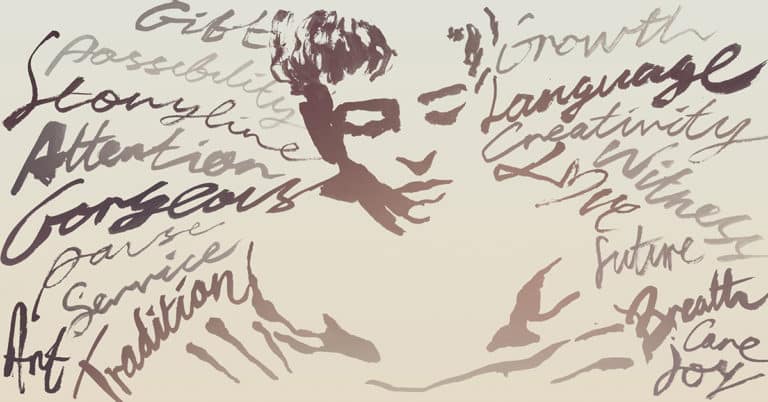
Image by Matt Huynh, © All Rights Reserved.
Guest
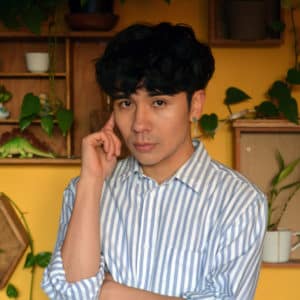
Ocean Vuong is a professor in the MFA Program in Creative Writing at New York University. His new collection of poetry is Time Is a Mother. He is also the author of a novel, On Earth We're Briefly Gorgeous, and the poetry collection Night Sky with Exit Wounds, which won the T.S. Eliot Prize and the Whiting Award. He was a 2019 MacArthur Fellow.
Transcript
Transcription by Heather Wang
Krista Tippett, host: I interviewed the wise and wonderful writer Ocean Vuong on March 8, 2020, in a joyful, crowded room full of podcasters in Brooklyn. A state of emergency had just been declared in New York around a new virus. But none of us guessed that within a handful of days, such an event would become unimaginable. So, for me, this conversation has become a last memory before the world shifted on its axis. What’s most stunning is how exquisitely this conversation speaks to the world we have since come to inhabit — its heartbreak, its poetry, and its possibilities of both destroying and saving.
I’m Krista Tippett, and this is On Being.
[music: “Seven League Boots” by Zoë Keating]
Tippett: It’s such an honor to be invited to be part of the On Air Fest and to do a show here. I’m really excited. I love this room, and I love the energy in it that you all are bringing. And what an honor and a delight to be up here with Ocean Vuong …
[applause]
… who I want to describe as a writer and wise person who, at a young age, has made a singular contribution to American letters, as a writer of poetry and essays and this novel that you may have heard of. The word “gorgeous” that occurs in the title, On Earth We’re Briefly Gorgeous, is a word that’s also often used to describe your writing and your voice, your literary voice.
And also, Ocean, I want to say I’m aware that when people write about you and introduce you and describe you, they often speak about how your work is shaped by themes of violence and survival, in the context of the immigrant experience, in the context of life and displacement in the aftermath of war, in the context of growing up Asian American and queer in this society. And that is true, and we’re going to talk about violence, but I’d also say that the sweep of your work is about bearing witness to the other side of violence and the possibility of joy, while taking nothing away and continuing to bear witness to the fullness of what has been carried and what has been survived.
So let’s start. Oh, I didn’t mention that you’re a MacArthur genius.
[laughter]
Ocean Vuong: I have no proof.
[laughter]
Tippett: You were born in Saigon, and when you were two years old, in 1990, your family came to the U.S. I have this question that I ask at the beginning of most of my conversations: an inquiry about the religious or spiritual background of someone’s childhood, or however they would define that now. I wonder how you — if there are aspects of your childhood to which you would attach that language of “spiritual,” “religious.”
Vuong: My family is traditionally Buddhist, but they were also illiterate, and so the extent of their Buddhism was rooted in rituals and care. And so every day before school, my mother would get me to the altar, and we would start to name this sort of roll call, the people in our family, and try to bless them and think about them and tend to them and to ourselves. And so spirituality began with care, rooted in physical bodies. It didn’t extend beyond the household. There was no mythical presence to it. It was almost like this abracadabra that we did before we stepped out of the house into the rest of the world, and thereby, the rest of America. And I think, for me, whatever my mother presented to me those early mornings in front of the altar is still true.
And I think I embrace that in everything I do — writing, sitting with you now — how do I do it with care. And even in the temples — in many Asian American households, when you enter the house, you take off your shoes. Now, we’re not obsessed with cleanliness any more than anyone else, but the act is an act of respect. I’m going to take off my shoes to enter something important. I’m going to give you my best self. And I think, even consciously, when I read or give lectures or when I teach, I lower my voice. I want to make my words deliberate. I want to enter — I want to take off the shoes of my voice so that I can enter a place with care, so that I can do the work that I need to do.
Tippett: In a number of places, you told a story, also, about a Baptist church in your neighborhood that you would visit on Sundays, partly because they had ice cream …
[laughter]
… but also that you became really taken with the story of Noah’s Ark, in a way that is really — that says a lot about how you approach your art and your life.
Vuong: I think that myth — I would sleep over at a friend’s house, and I grew up in Hartford, a predominantly Black and Brown neighborhood. And the next morning, my friends would give me their clothes, their church clothes, and we would just go. So I would end up attending, throughout my childhood, hundreds of church services in the Baptist church. And the preacher kept talking about Noah’s Ark. And I was so infatuated. I think it embedded into my psyche in really everything that I do, even to this day. What an incredible mythos to work and live by, which is that when the apocalypse comes, what will you put into the vessel for the future?
Tippett: It’s also such an image of — it’s preparing for the apocalypse and getting beyond it, which is also an experience that many people have, even in our world right now. It’s an immigrant experience — a migrant experience, as we’ve started to call it.
Getting ready to interview you made me ponder, also, the particular strangeness and singularity of what it is to be Vietnamese American. Your family — and in your case, your family was not just fleeing a war, and in the aftermath of war, and surviving that, but it was our war. You are Vietnamese American, and both sides of that equation were at war. And you were literally born because of that war. Your mother was the daughter of a …
Vuong: An American soldier.
Tippett: … an American soldier who fell in love with a Vietnamese girl, and then the whole family was blasted apart, just as the country was blasted apart.
Vuong: It’s a strange epic.
Tippett: You wrote somewhere, “No bombs = no family = no me. Yikes.”
[laughter]
Vuong: Yikes, indeed.
[laughter]
[laughs] What do we do? But I think it’s also a question integral to our species. And this Michigan farm boy, my grandfather, went to Vietnam to play the trumpet. He was trying to escape his domineering father, who didn’t allow him to go to music school. So a 19-year-old kid, thinking, as teenagers do, Well, I’ll go to war and play the trumpet.
[laughter]
[laughs] And so he met my grandmother and they married, and he was going to stay there. He was going to stay in Vietnam and have a new life. And then Saigon fell. So I’m a product of war.
But I think so much of American life is a product of war. You know, we’re standing on stolen ground.
Tippett: It’s just very literal in your story. It’s really concentrated.
Vuong: Well, I’m a first generation. I think this is why the work of Toni Morrison’s Beloved was so important to me, because I saw in Beloved a first-generation testimony, in the character, Sethe, leaving the South and creating Beloved, her daughter, to save her daughter. And never before have I seen a parallel close enough to the story of my own mother, who comes out of her own epicenter, and I’m, being her son, also my own Beloved. To see American literature hold the testimony of the first generation’s survival — to live on both sides of death and life in one short period of time, half of one’s life — felt so powerful to me, and I learned so much from that book.
Tippett: I want to talk about the power of words and language, which, given the beginnings of your life — as you’ve said, your family was illiterate; your mother never spoke English and really only, I think you’ve said, could read and write Vietnamese at about a fifth-grade level. There’s a lot of dyslexia in your family; you also struggled with that. And how old were you when you actually learned to read?
Vuong: A lot of the magazines say 11. I mean, you don’t wake up at 11 —
Tippett: Let’s set the story straight here.
[laughter]
Vuong: [laughs] You don’t wake up one morning and start reading books. It’s a slow, arduous task. So I started — I went to ESL; I went through the American education system, for better or for worse. And I was able to read, but my fluid, chapter-book reading, where I could just sit down and read a book, didn’t happen till I was 11. But I was able to pick out words, here and there. It was much delayed.
Tippett: Was there a moment where you can look back and where you started to feel in your body the power of words, which you now work with?
Vuong: Right away. I mean, I was surrounded by storytellers, by survivors and storytellers. And so my grandmother and my mother and my aunt would tell stories to recalibrate their past, to make sense of their past. And my root in the narrative and literary techniques and embodiment begins way before I entered a classroom.
And when you think about how people tell stories, stories are carried in the body, and it’s edited each time the person tells it. And so what you have, by the time someone tells a story, is a masterclass of form, technique, concision, imagery — even how to pause, which you don’t really get on the page. Arguably you do in poetry, with the line break. And this is what these women were giving me. I didn’t know how valuable that gift was.
[music: “Baleen Morning” by Balmorhea]
Tippett: I’m Krista Tippett, and this is On Being, today revisiting the extraordinary, prescient conversation I had with the writer Ocean Vuong at On Air Fest in Brooklyn, on the cusp of the pandemic.
[music: “Baleen Morning” by Balmorhea]
It’s also very moving and interesting to me, the way you — and you’ve started talking about this. You write about how Vietnamese culture that you were immersed in, how language is so embodied. Someplace you said, “a lot of love is communicated in Vietnamese culture through service”: “We cook, we massage, we scratch each other’s back.” There’s not a lot of saying “I love you,” but it’s communicated in those ways.
Vuong: The body is the ultimate witness to love. And I learned that right away. We don’t say, “I love you.” If we do, we say it in English, as a sort of goodbye.
Tippett: Really? That’s so interesting.
Vuong: Yeah, it’s almost like a cultural thing, just — we almost say it in lieu of goodbye. We don’t know how to say goodbye, either. It’s just …
[laughter]
… we say, “Bye-bye.”
[laughter]
And I think — because what happens is that through the body and through service, you articulate it through paying attention. Nothing can say “I love you” more than feeling it from somebody. And I think this relationship is how I started to see words. I looked at them as if they were things I could move and care for.
Tippett: The language of energy — and you use a lot of energy metaphors and imagery, for how you work with words and how words work in us.
Vuong: As a species, as life on Earth, we’ve been dying for millennia, but I don’t think energy dies. It’s transformed. And when you’re using language, you can create it, use it to divide people and build walls, or you can turn it into something where we can see each other more clearly, as a bridge. And that notion that you are a participant in the future of language is something I think our American education failed us.
Tippett: Say some more about that, “you are a participant in the future of language.”
Vuong: Well, we’re taught, particularly in elementary school, to learn a standardized language. And when you ask, Why is it this way?, Why is this the standard?, you arrive at a very arbitrary answer, and an answer which actually excludes, often, people of color: Your English is wrong. This English is right.
But in fact, language is always changing. And I think it’s the poets, the writers, and even the youth — they’re using language to cast new meaning, in the same way Chaucer just winged English spelling. There was no standardized spelling.
Tippett: [laughs] Right; right.
[laughter]
Vuong: He was like, “Spring? S-p-r-y-u-g? Sure.”
[laughter]
[laughs] “Let’s try it out.”
And I think the way language exists is similar to when I was in Hartford, we were surrounded by these abandoned buildings, these old factories. The Colt gun factory was in Hartford, and it sold weapons to both sides during the Civil War. And we would go into these abandoned warehouses just to play and explore, and I remember seeing these old, warped windows, the glass just melting, and looking through at my city, the city I thought I knew so well, through this glass. It was so surreal. Everything changed. Everything was warped.
And to me, that’s what language is: the glass. You think it’s fixed. You think it’s clear pane of glass. But in fact, through years, it starts to drip and melt and change.
Tippett: Right. Even that notion that language is clear, even this presumption that we walk around making — that what we mean when we use any word transmits perfectly to another — it’s always imperfect, which is also what makes art so exciting and creative.
Vuong: Right. We often tell our students, The future’s in your hands. But I think the future is actually in your mouth.
[laughter]
You have to articulate the world you want to live in, first. We pride ourselves as a country that’s very technologically advanced. We have strong, good sciences, good schools; very advanced weaponry, for sure. But I think we’re still very primitive in the way we use language and speak, particularly in how we celebrate ourselves — “You’re killing it.”
Tippett: You’re so acute about the violence of the American lexicon.
Vuong: We have to ask — I’m not saying it’s wrong, per se. I use it too, being a product of this country. But one has to wonder, what is it about a culture that can only value itself through the lexicon of death? I grew up in New England, and I heard boys talk about pleasure as conquest. “I bagged her. She’s in the bag. I owned it. I owned that place. I knocked it out of the park. I went in there, guns blazing. Go knock ‘em dead. Drop dead gorgeous. Slay — I slayed them. I slew them.” What happens to our imagination, when we can only celebrate ourselves through our very vanishing?
Tippett: I mean, even you as a poet have said people say to you, “You’re killing it.”
Vuong: What does it do to the brain? We know language matters.
Tippett: What is it doing to us?
Vuong: We know language matters. They did a control where they were trying to get these lab mice to move through a maze. And they labeled one mouse the smart, intelligent mouse. And the other mouse was the control, just a normal mouse. The reality was that they were both normal mice. There was nothing special about them. But the one labeled the superior mouse always went through the maze faster. And that phenomenon is actually something that’s still studied, but one theory is that it was the human beings who attended them. The ones that had the “good” label, the “promising” label, were tended to with more care — “special.”
Tippett: And I suppose a lot of that was subconscious. But it’s in a way in which even the words we are thinking is shaping the way we’re interacting.
Vuong: Absolutely, at the subconscious level. And so I think, what happens if we alter our language? Where would our future be? Where will we grow towards, if we start to think differently about how the world is? “This is a battleground state.”
Tippett: [laughs] Oh, it goes on and on.
Vuong: I thought the Civil War was over.
[laughter]
But we’re in “battleground states.” “Target audience.”
Tippett: Something I started to notice after 9/11 was this language of “hunting down” — “hunting down” terrorists. But that’s language you use for animals. And that coarsens us.
Vuong: I grew up right in the shadow of 9/11. It created something very interesting, because we were essentially the last generation to play outside thoroughly. Things like tag and manhunt, those things were gone overnight. I saw it with my own eyes. Our nation became a nation that dictated fear through colors: today is red; tomorrow is orange; “yellow alert.”
Tippett: So you mentioned the Buddhist practice that was part of your childhood, that you then rediscover and make your own, as an adult. It feels to me like this space you inhabit, what you see so clearly, and insisting on holding the complexity of that — it seems to me that you do have ways — and I think, also, the implications of what you’re saying, because what you’re saying is that these are — this is a rigor of how we use our words and how we understand the power we have to move through time and through ordinary experiences of our day; that we all have it in ourselves to claim right now. But you have ways of making that more possible in yourself. I read — is it true? Do you still live across from a cemetery? Is that right?
Vuong: Yes, I do.
Tippett: And that you perform this Zen Buddhist death meditation?
Vuong: I go out, and I walk around the cemetery, and even without it, I sit down and I do a death meditation. And it sounds very morbid, but the practice is actually supposed to bring yourself into the inevitable. The conditions of our lives will be vanquished through death. And then all the pettiness — the little angers that you have with those you love, with those you don’t love, and your neighbor, the little things — falls away. It’s so small, when the ultimate, lasting reality is death.
And I think it goes back to Noah’s Ark, too. Noah was also doing death meditation.
Tippett: He was a Zen Buddhist without knowing it.
Vuong: [laughs] I think so.
Tippett: He didn’t know he was Jewish, so … [laughs]
[laughter]
Vuong: I think so. But I think all religions have this — outside of all of the orthodoxy and the rigor of ceremonies, at the center of it is trying to remind us that we will die, and how do we live a life worthwhile of our breath? And I think thinking about death and thinking about what we do towards it, around it, helps me center myself in such a chaotic space. And I do think it’s part of my own nurturing of my own mental health.
[music: “Paramour” by Pilote]
Tippett: After a short break, more with Ocean Vuong.
[music: “Paramour” by Pilote]
I’m Krista Tippett, and this is On Being. Today, a conversation with the wonderful writer Ocean Vuong that happened right before the world changed in 2020 but that speaks so vividly and helpfully to the realities we have since come to inhabit.
Tippett: There’s so much I wanted to talk to you about, and it’s beautiful, actually, what’s emerging here. And it feels like — you’ve described how your method of creating is that you walk a lot, right? Again, it’s embodied practice. And you walk and you walk, and things build up in you. And there’s a way in which I feel like words and meaning flow out of you, which is also an experience one has in reading your work. And as we’re hearing, it’s consonant with the way you understand reality and help other people understand reality.
Vuong: I mean, it’s not always that smooth. [laughs]
Tippett: No; I’m sure.
[laughter]
I’m sure it’s not. [laughs]
Vuong: It’s kind of like — a lot of things flow, but not all of them are good, so …
[laughter]
… sometimes, I gotta rein it back. [laughs]
Tippett: OK. I didn’t want to suggest that …
I just wanted to note this: the picture on the cover of Night Sky with Exit Wounds, it looks like such a happy picture of a little boy and two women who love them; you imagine one of them is his mother. And in fact, you guys were in a refugee camp in the Philippines, and you had to — someone took that picture, and you paid them for that picture.
Vuong: Three cups of rice for that photo. We were in a refugee camp, and we got rations. And each day, each family got three cups of rice. And there was a photographer who went around — even in a refugee camp, it’s a microcosm of the world. Somebody’s going to try to make a business.
Tippett: [laughs] Of course.
[laughter]
Vuong: And I was thinking about the cover for my first book — that was my first book. And we had several ideas. But I think part of my education with the history of Vietnam and America’s involvement in it became something very different from what was given to me in the textbooks. The textbook says, “Well, first of all, here’s five chapters on George Washington … ”
[laughter]
“ … what he ate, what kind of teeth he had … ”
[laughter]
“ … what kind of tree he chopped down.”
[laughter]
And by the way, if somebody chops down a fruit tree, that’s a red flag, for me.
[laughter]
Tippett: That’s true. [laughs]
Vuong: [laughs] It’s like, nobody asks why he chopped down a fruit tree.
[laughter]
But the myth — I realized the myth of America was so strong. And it’s very interesting, because when we got to the Vietnam War, it was like two pages. There’s a photo of Kennedy, then there’s a photo of Nixon.
Tippett: [laughs] Right.
Vuong: Right? “Something bad happened over there; anyway, it’s over; then we went on to the Gulf War, when we were heroes again.” Right?
So I thought — by the time I was in college, I was like, I gotta figure this out. So I started to do my own research, and I realized right away that one’s research with the Vietnam War — something I was not prepared for was to see upwards of — hundreds of dead bodies. Asian bodies. Bodies that look like me. So when you are most recognizable in your research as a corpse, it does something to you. Sometimes the bodies were so mangled, you didn’t know where one began and ended. And so I wanted for my first book to have Vietnamese bodies on the cover that were living.
And so that photo was a moment of salvaging and preserving bodies in transit. What was it about these women, I thought, that would surrender their very sustenance, in order to preserve their image?
Tippett: Right. And even when you came here — somewhere I think you said that you had to pay for that picture, you had to pay to be seen. And even what you’re saying about how even in that moment — and I was a child, but the fact of being able to see those bodies is actually what ended the war. And then, after that, we never saw bodies come home from war again.
Vuong: They learned. They learned.
Tippett: But even when you came here — and this is about the immigrant experience, but it’s also about being Vietnamese — your mother would say to you, “Remember, child — don’t get noticed. You’re already Vietnamese.”
Vuong: It’s interesting that wisdom often arrives as a warning. I think it’s often something that those in the center, those in power, never know; that before you leave the house, in order to achieve yourself — one sends one’s children to school in order to fulfill their dreams. And in order to do that, you have to be warned that “there is a strike against you, by the way, so sink in. Fade away.”
And I think that’s the great crisis of the first and second generation. The first generation made it here, and to live at all is such a privilege that they’re happy, and even encourage you to put your head down, work, fade away, get your meals, and live a quiet life. And I think the second generation, the great conundrum there, the great paradox, is that they want to be seen. They want to make something. And what a better way to make something and fill yourself with agency than to be an artist? So: so many of us immigrant children end up betraying our parents in order to subversively achieve our parents’ dreams.
Tippett: Right. Right.
Your mother worked in a nail salon all of your life and her life, and you worked there, and members of your family worked there. And I love it that you were eventually able to buy her a house — and she always wanted a garden — because you are now seen. She watched you.
I love the story — I wonder if you would tell it — about the experience she had when she first came to hear you read. And of course, she couldn’t understand the English, but her reaction to you.
Vuong: The first time, I was reading at the Mark Twain House, of all places, in Hartford. And it was nearby, so I asked her to come, and it was the first time she saw me read. And of course, she doesn’t understand the English, but she was so proud to just see her son up there in the spotlight, a small spotlight. And I went back to her — I read, people clapped, and they stood, and it was lovely. And I went back to her, and she was sobbing. And being the dutiful son, I said, “What did I do? What happened? Are you OK?” And she said, “No, I just never thought I’d live to see all these old White people clapping for my son.” [laughs]
[laughter]
And I thought it was interesting, because, I said, I’ll try to understand what that means; what it means; what kind of validation is that. It’s not necessarily one that I share myself. So I almost had this arrogant gaze to it. I said, “That doesn’t seem like victory to me, just because a bunch of White folks clapped. Victory is something else, to me, something more.”
Until, the next day, I was at the salon again with her. Her makeup’s off, and she put her nice dress away that she wore at the reading. She took her earrings off. And right out the gate, in the early morning, I saw her and watched her kneel at the pedicure chair before one old, White woman after another. It was so humbling, because I thought, Finally. She was below their eye level for so many years. And for one brief moment, in Mark Twain’s house, [laughs] they saw her, face-to-face, as an equal. And that’s when I understood, that is victory.
[music: “Pearls” by Helios]
Tippett: I’m Krista Tippett, and this is On Being, today with the writer Ocean Vuong, recorded at On Air Fest in Brooklyn, in March 2020. We also took some questions from the last live audience any of us would be in for some time.
[music: “Pearls” by Helios]
Audience Member: I have to say that probably I’ve been listening to Krista for as long as I can remember, and this has to be one of the most moving, tender, beyond words conversations I’ve heard. And I’m so glad that I got to see the embodiment of your language. So along those lines, I was interested to know about some of the body practices that you do. I completely hear what you’re saying about the potential for language and the care that each word uttered. There also is some preparatory practices that come with that responsibility, and I was wondering if you could share any thoughts on that.
Vuong: I do think it does begin and end in the body. Language is something we carry. I always bring this back to my students, as well. I said, You’re working on a poem or a story, when you’re hitting a dead end, when it’s not going, take it with you. Get away from the desk. Now you have to work with your body. Maybe there’s questions you’re not asking. Maybe you have to recite this poem and walk with it. This is what we’ve always been doing. we’ve been telling stories as we walked; we’ve been telling stories as we work, side-by-side. This idea that language is a private, isolated act is so new that I think we still haven’t figured out if it’s useful or not.
And so I think it’s valuable to open up that debate again and not to say that it has to be like this or like that, for anybody, but to say, if it’s not working, we can do something different, an alternative route. And in this sense, having the words in the air — I feel like the voice in the air is like a second page, the way you can articulate — the pauses, the cadences. I learned this, mostly, from watching Whitney Houston. If you listen to Whitney Houston’s songs, they start like a whisper. And then how do we get to the pinnacles, the bright-lit room of her peaks? But the power and the mastery in her performance is the oscillation, and the respect of how a word, which is static on the page, can be lifted and amplified through using the whole range of human emotion in the voice. So I’m an apprentice of that.
Tippett: I would not have traded the experience of being with you, physically, but I really love — most of my interviews are remote, and I’m in a studio; somebody is coming in through my headphones, basically. But there’s often an assumption, in people who don’t work in this medium, that that makes it less intimate. But to have the human voice to work with, and to get everything that the human voice carries — it is the body — is really magical, to really be able to completely focus on that.
Speaking of the body and walking and movement, I want to close — you wrote this beautiful essay in The Rumpus, in 2014, called “The Weight of Our Living: On Hope, Fire Escapes, and Visible Desperation.” Part of the context of that piece was your uncle’s death by suicide. He was three years older than you, and you’d grown up together. And that wove into you reflecting, on these walks you do through New York City, on fire escapes. I’m going to read a little bit, and then I want you just to say more.
“All that richness and drama sealed away in a fortress whose walls echoed with communication of elemental and exquisite language” — you’re looking at all the buildings — “and yet only the fire escape, a clinging extremity, inanimate and often rusting, spoke — in its hardened, exiled silence with the most visible human honesty: We are capable of disaster. And we are scared.”
Vuong: It was such a blow. Anyone who has lost anybody to suicide — I lost my uncle; I lost a few friends. The great mystery and the great violence of taking oneself out of the picture — I’ve been grappling with that for so long. And I think one of the things that lead us to that is that you start to feel that you are always out of the picture — this loneliness that language does not allow us to access. The way we say hello to each other — Hi, how are you? Oh, good, good, good, good, good. So the “how are you” is now defunct. It doesn’t access. It fills. It’s fluff.
And so what happens to our language, this great, advanced technology that we’ve had, when it starts to fail at its function, and it starts to obscure, rather than open? And I think the crisis that my uncle went through, and a lot of my friends, was a crisis of communication — that they couldn’t say, “I’m hurt.”
And looking at — I remember when I heard of his suicide, I was a student at Brooklyn College in New York. I went for the longest walk. And I kept seeing these fire escapes. And I said, what happens if we had that? What is the linguistic existence of a fire escape, that we can give ourselves permission to say, Are you really OK? I know we’re talking, but you want to step out on the fire escape, and you can tell me the truth?
And I think we’ve built shame into vulnerability, and we’ve sealed it off in our culture — Not at the table, not at the dinner table, don’t say this here, don’t say that there, don’t talk about this, this is not cocktail conversation, what have you. We police access to ourselves. And the great loss is that we can move through our whole lives, picking up phones and talking to our most beloveds, and yet still not know who they are. Our “how are you” has failed us. And we have to find something else.
And I thought about that. What if literature, my participation in it — that’s my field, if you will — what if the poem, the story, the novel, at its best can serve as a fire escape? Because on the page, you don’t have the awkward reality of a body bumping into someone in the supermarket. You don’t have to say, How ‘bout them Patriots? You don’t have to talk about the weather. You can go right in, deep. And I really have been — it changed the way I thought about writing and literature, in that if we have the fire escape as a reality in our buildings, what does it look like in the reality of our communication, in our language? What does that look like?
And I’m still figuring that out. I’m still — every book, every poem, I think, is my attempt at articulating a fire escape. But I think it was a great reckoning for me, because here I am, supposedly a writer, and then my uncle dies, and I’ve lost so much. We talk all the time, we say all these things, and yet I never knew what was happening. And if that’s the case, language, this field that I chose, this thing that I feel so much hope for, failed me. And it was a reckoning, I think, existentially, with myself as an artist.
Tippett: I wonder if, to close this incredible time together, if you would read — I just copied out a paragraph from the end of this essay from 2014, “The Weight of Our Living.”
Vuong: “The poem, like the fire escape, as feeble and thin as it is, has become my most concentrated architecture of resistance. A place where I can be as honest as I need to — because the fire has already begun in my home, swallowing my most valuable possessions — and even my loved ones. My uncle is gone. I will never know exactly why. But I still have my body and with it these words, hammered into a structure just wide enough to hold the weight of my living. I want to use it to talk about my obsessions and fears, my odd and idiosyncratic joys. I want to leave the party through the window and find my uncle standing on a piece of iron shaped into visible desperation, which must also be (how can it not?) the beginning of visible hope. I want to stay there until the building burns down. I want to love more than death can harm. And I want to tell you this often: That despite being so human and so terrified, here, standing on this unfinished staircase to nowhere and everywhere, surrounded by the cold and starless night — we can live. And we will.”
Tippett: Ocean Vuong, thank you so much.
Vuong: Thank you.
[applause]
[music: “Pearls” by Helios]
Tippett: Ocean Vuong’s new collection of poetry is Time Is a Mother. His other, celebrated books are On Earth We’re Briefly Gorgeous and Night Sky with Exit Wounds.
Special thanks this week to Jemma Brown, Scott Newman, Sam Bair, and all of the wonderful staff at On Air Fest, the great gathering of podcast and audio makers.
The On Being Project is: Chris Heagle, Laurén Drommerhausen, Erin Colasacco, Eddie Gonzalez, Lilian Vo, Lucas Johnson, Suzette Burley, Zack Rose, Colleen Scheck, Julie Siple, Gretchen Honnold, Jhaleh Akhavan, Pádraig Ó Tuama, Gautam Srikishan, April Adamson, Ashley Her, Matt Martinez, Amy Chatelaine, Cameron Mussar, and Kayla Edwards.
The On Being Project is located on Dakota land. Our lovely theme music is provided and composed by Zoë Keating. And the last voice that you hear singing at the end of our show is Cameron Kinghorn.
On Being is an independent, nonprofit production of The On Being Project. It is distributed to public radio stations by WNYC Studios. I created this show at American Public Media.
Our funding partners include:
The Fetzer Institute, helping to build the spiritual foundation for a loving world. Find them at fetzer.org;
Kalliopeia Foundation, dedicated to reconnecting ecology, culture, and spirituality, supporting organizations and initiatives that uphold a sacred relationship with life on Earth. Learn more at kalliopeia.org;
The George Family Foundation, in support of the Civil Conversations Project;
The Osprey Foundation, a catalyst for empowered, healthy, and fulfilled lives;
And the Lilly Endowment, an Indianapolis-based, private family foundation, dedicated to its founders’ interests in religion, community development, and education.
Books & Music
Recommended Reading
The On Being Project is an affiliate partner of Bookshop.org and Amazon.com. Any earnings we receive through these affiliate partnerships go into directly supporting The On Being Project.






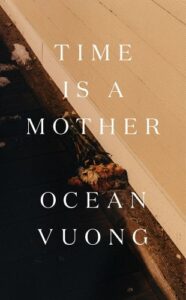
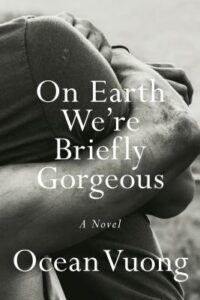
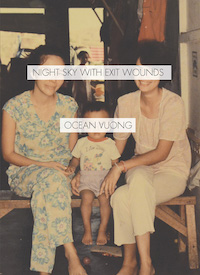



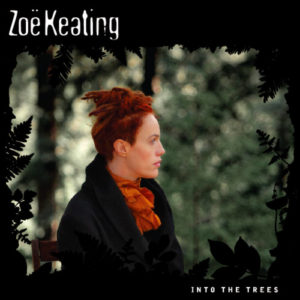

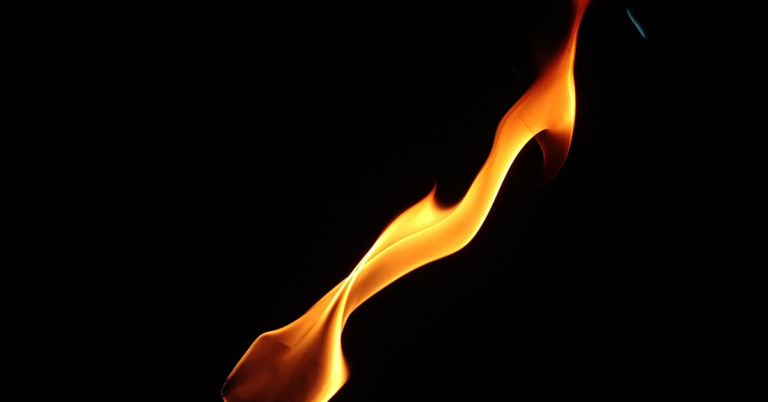
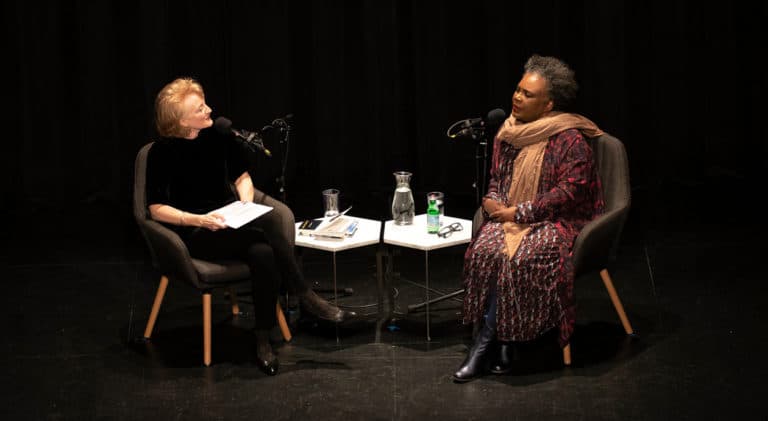
Reflections